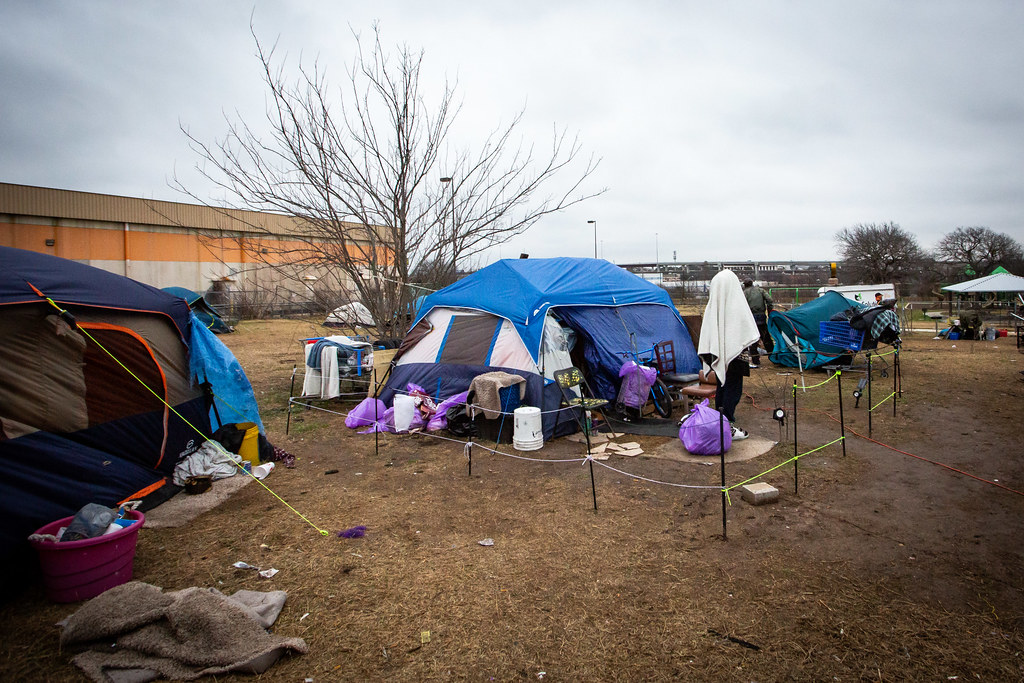In the 1960s, Congress passed a law that prevented mental hospitals from taking public insurance like Medicaid and Medicare.
The idea was to reform a broken system. At the time, mental hospitals were seen as ghastly places where the mentally ill were being essentially warehoused.
Now, though, lawmakers look ready to reverse course. A measure backed by Republican Rep. Michael Burgess, a doctor from North Texas, would allow Medicaid users to seek treatment for substance abuse issues at an in-patient mental health facility.
Carmen Paun, global health reporter for Politico, spoke to the Texas Standard about the proposal.
This transcript has been edited lightly for clarity:
Texas Standard: Tell us more about how and when someone might be able to use Medicaid at a mental health hospital under this proposal.
Carmen Paun: There are many states where it’s already possible for a person with a substance use disorder – so someone who is addicted to fentanyl, for example – if they need intensive care, to go into a facility that provides mental health services for up to 30 days a year, to get that treatment to be stabilized and then be able to continue their recovery outside of outside of that facility, maybe in another type of clinic or just being at home.
Now, lawmakers in D.C. are looking at potentially expanding this. They’re saying it’s not the 1960s anymore; mental health hospitals are not what they used to be. You know, drug addiction in itself has been recognized as a mental illness, and you need to have a place where they could go and be stabilized and seek care and, you know, have that initial weaning off of those drugs.
And it’s really hard to do that while they’re still at home or in a sort of like outpatient clinic. And you need them to be in a location where they’re safe or where they’re being provided treatment and where there’s a bed for them.
» GET MORE NEWS FROM AROUND THE STATE: Sign up for Texas Standard’s weekly newsletters
This current policy has been in place for over 60 years. Why are lawmakers talking about reversing it now?
It’s because all across the country, they’re dealing with the crisis of homelessness, and you’re dealing with a crisis of opioid addiction. The U.S. had in 2022 an estimated 110,000 drug overdose deaths, most of them driven by illicit fentanyl, which is a very strong opioid.
And people need care. And lawmakers in D.C. feel that treatment opportunities are not sufficient across the country, that there are not enough beds for people who want to go in a facility to try to start a journey towards recovery. So they’re looking literally at all possibilities to expand access to care for people who need it across the country.
For people who are struggling with a mental health issue, in many cases, many of them end up on the street homeless.
I understand not everyone is on board with this idea, and you seemed to be hinting at it earlier when you talked about the dangers of a return to the sort of “warehousing” mentality when it comes to those in need of mental health treatment. Tell us more about the resistance to this change.
There are Democrats in Washington D.C., among them Frank Pallone from new Jersey, and he’s the top Democrat in the Energy and Commerce Committee in the House, which deals with health issues. And he is afraid that basically, putting people in mental health hospitals will be seen by some as an easy solution – sort of like out of sight, out of mind.
And they wouldn’t work towards what everyone wants to see, sort of like a community-based system where people could go to a facility near their house, or if they don’t need like an intensive level of care, they could be treated by a team of of health specialists, of social workers while they’re still in their homes. And, you know, he’s afraid that just sending them to a mental health hospital will not lead to this community system being created.
And there are also other people, you know, civil rights activists, who are saying that these mental health hospitals haven’t necessarily improved so much; that there are still reports in DC and in other parts of the country of abuse, of understaffing, of neglect, and that this is not a solution – that lawmakers have to come up with, have to do the hard work, not sort of like just the return of this policy of like having them go to one of these hospitals, which they say in many cases doesn’t provide proper treatment for people with substance use disorder or people with another mental illness.












